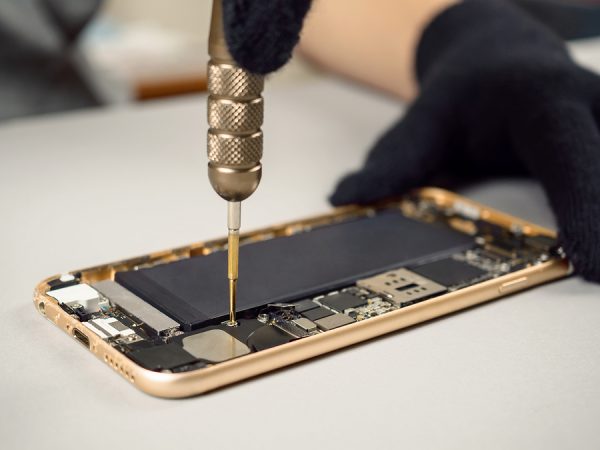
E-waste is a growing concern. Some are starting to embrace recycling, but not every state offers it. Even those that do make it difficult. Consumers must find drop-off locations that are open at convenient times. If you work 8 to 5 and the e-recycling drop off is only open from noon to 4 p.m., it’s impossible to get there in time.
The Right to Repair Movement started in Massachusetts. The state passed an act that requires automotive manufacturers to make documents and information available to car owners. With this information, car owners can repair their own vehicles. Starting in 2018, major automotive companies agreed to make this information available in all 50 states.
The Repair Association decided the concept needed to be expanded to the electronics industry. While many electronics manufacturers require people to go through an authorized repair vendor or the manufacturer for repairs, the Right to Repair would make it possible for people to purchase what’s needed to repair an electronic device. Companies balk saying that people may learn trade secrets if they are allowed to repair their own devices.
At the same time, a large percentage of people feel that requiring people to use a specific repair company creates monopolies. They also feel that they’re forced to upgrade products due to the cost of repairs. Even the FTC has given input. Some companies state warranty coverage is voided if a consumer uses third-party replacement parts or breaks a seal or warranty sticker. Those electronics companies are violating the Magnuson-Moss Warranty Act if they do not provide free parts or repairs.
Per 2014 figures, 11.7 million tons of e-waste came from the U.S. Per the EPA, only a fraction of that waste is properly recycled. Only half of the states in the U.S. have mandatory e-recycling laws. Only 19 states expressly ban the disposal of electronics in landfills. If the Right to Repair passes, it would greatly help reduce e-waste in two ways.
The Right to Repair Would Stop Consumers From Upgrading Regularly
If consumers could repair a broken screen without spending hundreds of dollars, do you think they’d still rush to replace a phone as quickly? The screen replacement or repair for different iPhones averages $60 to $150. Estimates for other phones average $60 to $90. If the phone is older, consumers are left with the choice of paying for the costly repair or upgrading. If they upgrade, not every state mandates electronic recycling. Some of this e-waste ends up in the trash where it harms the environment.
The Right to Repair is gaining a lot of interest. Until laws change, the Repair Association started a wiki-based repair site where consumers can share information on how to fix different electronic devices. They can create repair manuals to share, and other users can correct errors in the different repair manuals. Many are starting to rely on this site to handle repairs on their devices. With more than 55,000 manuals, it’s clear the site is drawing people who want to fix their computers, phones, tablets, game consoles, and other electronics.
The Right to Repair Would Allow Electronics Recyclers to Better Do Their Job
Some electronics are so slim that disassembling them can be tricky. E-recyclers have to spend extra time taken the materials apart for recycling. With blueprints, guides, and schematics, it could help speed up the process.
It’s Helping Raise Awareness
The Right to Repair is bringing awareness to a problem, too. Per iFixit, only 22% of e-waste is properly recycled. People are starting to understand that the obsolete computer they’re ready to trash could be fixed and donated to someone in need. An older cell phone may not suit a young adult, but it could be valuable to an older adult on a fixed income who’s been going without. Repairs make sense.
ERI was founded in 2002. The company has 17 years of experience in IT and electronics asset disposition. We process approximately 5% of all the e-waste in the U.S. We were the first electronics recycling company to hold both R2 and e-Stewards certification. Why does that matter? It’s a promise we make to recycle electronics in the U.S. and not ship anything overseas.
We have locations throughout the U.S. and can accept electronics from every zip code. We’re a leader in e-recycling and are happy to help you destroy data, refurbish and resell devices with value, and recycle the rest. Give us a call at 1-800-ERI-DIRECT to learn more.